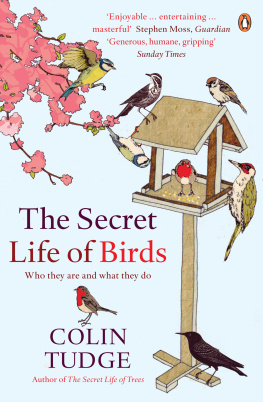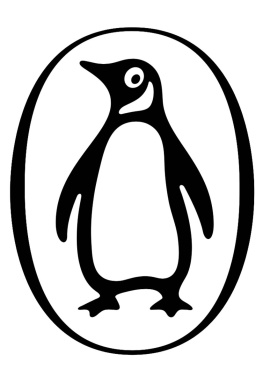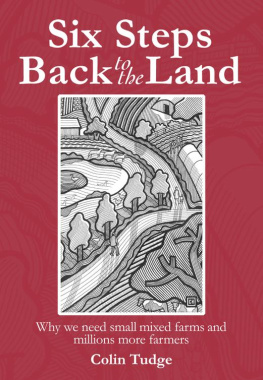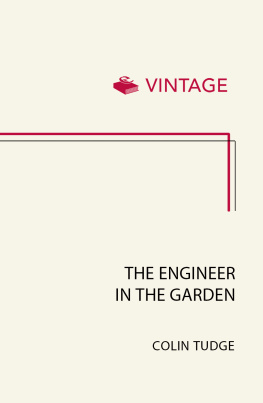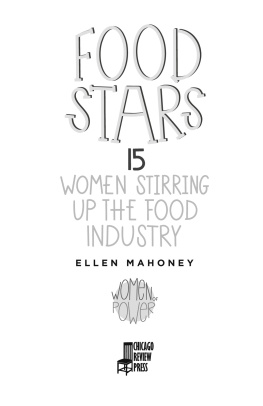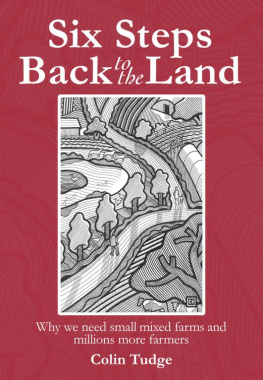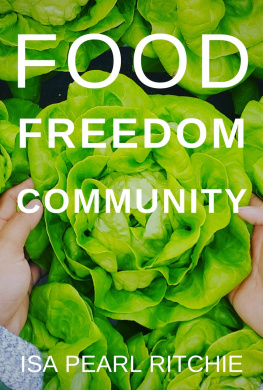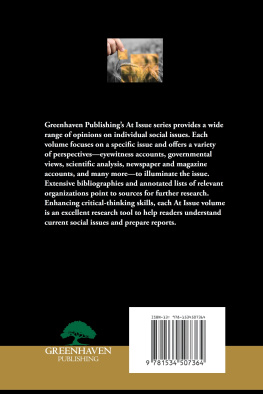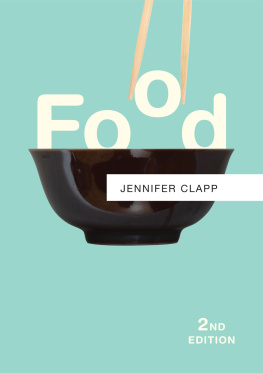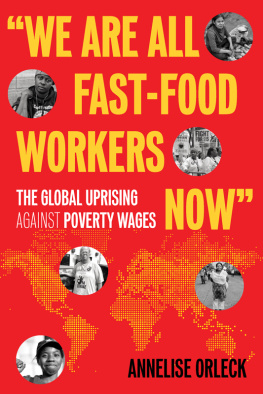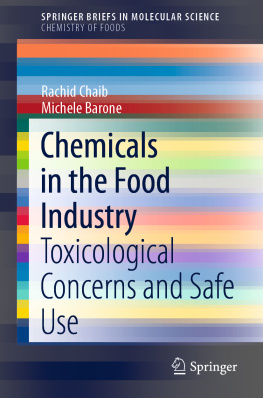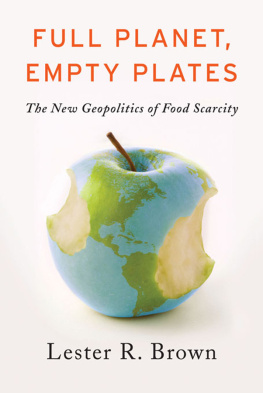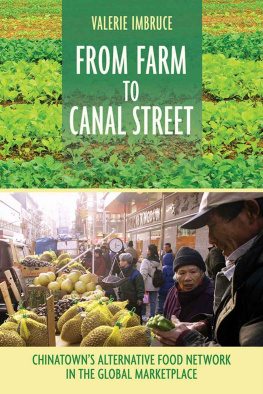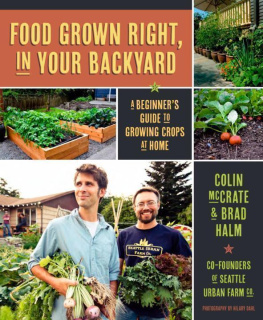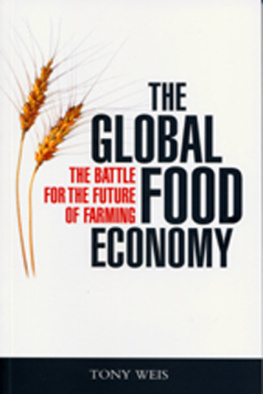PENGUIN BOOKS
SO SHALL WE REAP
Compelling a devastating analysis of the arrogance and wrong-headedness of the food-production business The Times
A frightening reckoning of the damage being done by our appetite for cheap food Daily Mail
Were it possible to mandate required reading for all the politicians, civil servants, bio-technologies, food processors and retailers with a hand in agriculture today, this would be top of my list Jonathon Porritt
A well-thought out, detailed book Although full of scientific rationale, it also appeals to common sense he gives a great deal of intellectual weight to many of the arguments he presents Scarlett Thomas, Independent on Sunday
This is a journey all the way from the hunter-gatherers who first tried farming to the agri-businessmen who clear the land for industrial food production. The byways through science, nutrition, genetics, economics and even morality are adorned by learning worn lightly Colin Tudge persuasively lays out the needs and prospects for enlightened agriculture if future generations are to survive and prosper. It is a tract for our times Sir Crispin Tickell, Director of the Green College Centre for Environmental Policy and Understanding, University of Oxford
Unlike many opponents of GMOs Tudge can argue the detailed scientific case, but he also has a wonderful eye for anecdote Felicity Lawrence, Guardian
A blueprint for mankind that not only shows us how to feed everyone, but to feed them well without compromising the ethics required to nurture a responsible stewardship of this planet Countryside Voice
ABOUT THE AUTHOR
Colin Tudge read zoology at Cambridge and then became a writer, first for magazines, including New Scientist, and then for the BBC. Since then he has focused increasingly on books, writing on agriculture and conservation and on genetics and evolution. His publications include The Variety of Life. Colin Tudge is a Fellow of the Linnean Society of London and visiting Research Fellow at the Centre of Philosophy at the London School of Economics.
COLIN TUDGE
So Shall We Reap
What's Gone Wrong With the World's Food and How to Fix It

PENGUIN BOOKS
PENGUIN BOOKS
Published by the Penguin Group
Penguin Books Ltd, 80 Strand, London WC2R 0RL , England
Penguin Group (USA), Inc., 375 Hudson Street, New York, New York 10014, USA
Penguin Books Australia Ltd, 250 Camberwell Road, Camberwell, Victoria 3124, Australia
Penguin Books Canada Ltd, 10 Alcorn Avenue, Toronto, Ontario, Canada M4V 3B2
Penguin Books India (P) Ltd, 11 Community Centre, Panchsheel Park, New Delhi 110 017, India
Penguin Group (NZ), cnr Airborne and Rosedale Roads, Albany, Auckland 1310, New Zealand
Penguin Books (South Africa) (Pty) Ltd, 24 Sturdee Avenue, Rosebank 2196, South Africa
Penguin Books Ltd, Registered Offices: 80 Strand, London WC2R 0RL , England
www.penguin.com
First published by Allen Lane 2003
Published in Penguin Books with a new Afterword 2004
Copyright Colin Tudge, 2003, 2004
All rights reserved
The moral right of the author has been asserted
Except in the United States of America, this book is sold subject to the condition that it shall not, by way of trade or otherwise, be lent, re-sold, hired out, or otherwise circulated without the publisher's prior consent in any form of binding or cover other than that in which it is published and without a similar condition including this condition being imposed on the subsequent purchaser
ISBN: 978-0-14-192731-2
Contents
I
The Nature of the Problem and the Meaning of Agriculture
II
Food: The Future Belongs to the Gourmet
III
Science, Money and World Power
IV
Enlightened Agriculture
Acknowledgements
I am always aware of my debt to everyone who has ever taught me anything; and even on the particular matter of food and farming, the people all around the world who have expanded my thoughts are too numerous to mention. But among them I should single out the late (and much missed) Anil Agarwal, who fought for many years in India for the environment and for justice; Michael Allaby, who thought long and hard about self-sufficiency in particular, before I got around to it, and with whom I once co-authored a book; to Sir Kenneth Mellanby, to whom Mike Allaby introduced me; and to Dr Paul Richards, of University College London, who recognized the strengths of indigenous farming long before most people, and opened my eyes to them. I have also benefited enormously from discussions with Peter Bunyard, who has for many years worked for The Ecologist; Dr Matt Ridley, a fine writer on biological matters, who also runs an estate in exemplary fashion; Dr Bernard Dixon, who has guided me in matters relating to animal disease; and Dr Jeremy Cherfas, zoologist turned seedsman, now with IPGRI (the International Plant Genetics Research Institute, Rome). Recently, too, I have come to know Satish Kumar, at Schumacher College, who has helped me to refine my ideas on ethics, and in particular on the philosophy of Gandhi. Among the many scientific institutions I have visited this past three decades, I remember in particular the Rowett Research Institute, Aberdeen, in the 1970s, when it was directed by Sir Kenneth Blaxter; Rothamsted, the oldest dedicated agricultural research institute in the world, where among many others I was privileged to talk at length to N. W. Pirie another pioneer thinker from the 1970s; ICRISAT (the International Crops Research Institute for the Semi-Arid Tropics, Hyderabad, India); and IPGRI. Of all the agricultural scientists I have met, the ones I spent most time with and so learnt most from are Dr Bob Orskov, formerly at Rowett and now at the Macauley Research Institute, Aberdeen; and Dr Mike Gale, FRS, at what was then the Plant Breeding Institute, Cambridge. In recent years I have learnt an enormous amount from conversations at the Centre for the Philosophy of the Natural and Social Science, and will always be grateful to Dr Helena Cronin for inviting me to become a Visiting Fellow. I am especially grateful, in the present context, to Max Steuer at the London School of Economics (LSE) for his input on economics in general; Dr Richard Webb, for his views on globalization (on which we seem to disagree more or less completely); and Professor Tim Dyson, for his particular insights into demography. Through the LSE I also met Professor Aubrey Sheiham, at University College London, who has done his best to keep me up to date in nutritional science. Since I moved to Oxford, too, I have received great help and encouragement from Sir Crispin Tickell, who has added a slice of my own concerns to his already prodigious workload. To all: much thanks.
Finally, I owe a great deal both to John Brockman and to Felicity Bryan for helping me to get the initial outline of this book into shape; and to Stefan McGrath at Penguin who took the book on. Finally, I am in endless debt to my wife, Ruth West, for putting up with me in general, making it easy to focus on the work in hand (at the expense of her own work), and for her very significant intellectual input (for she too has pondered at great length the issues raised in this book).
Acknowledgements for the Paperback Edition
Two people in particular have influenced my thoughts since I submitted the original text for Reap in the spring of 2003 (as now reflected in the Afterword). Professor Norman Myers, who has various posts but is based mainly at Oxford, clarified my thoughts on the (very uncertain and often negative) relationship between money and human well-being. In the Summer of 2003, too, my wife Ruth and I had the privilege of staying with Robin and Binka Le Breton at their wonderful dairy farm
Next page

